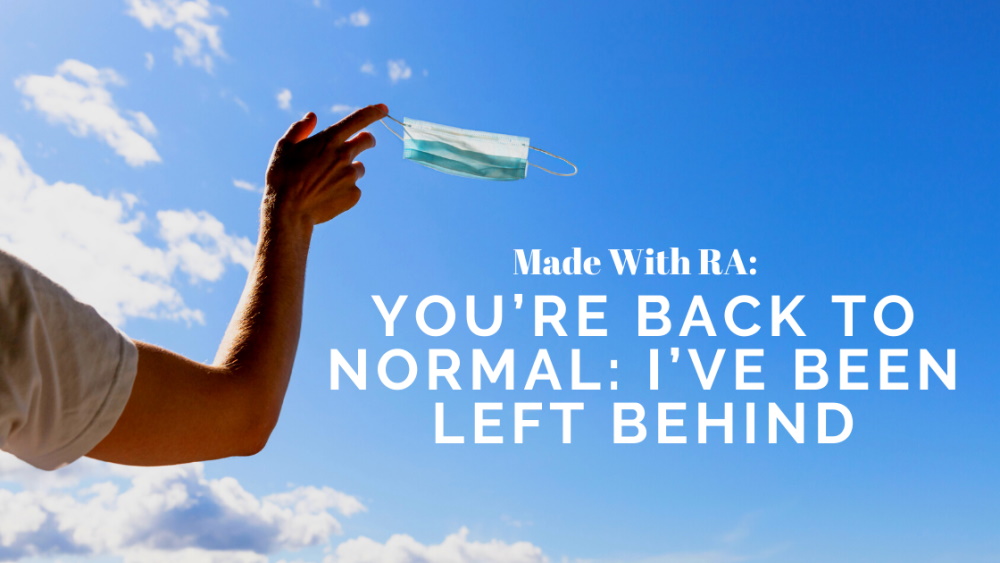Made WIth RA: You’re Back to Normal: I’ve Been Left Behind

The COVID-19 pandemic has revealed the depth of ableism and discrimination against people with disabilities. In this column for a HealthCentral, I share the experience of being high risk and the emotional impact of being swept under the rug of pandemic ableism:
““Why should I change my life when you have to be careful anyway?”
This was the moment when the pandemic changed for me. As we were entering the highly transmissible and deadly COVID-19 Delta wave in the fall of 2021, a quick conversation on Twitter made it clear that we were no longer in it together. Along with vaccines being released earlier in the year came a sense of security that mixed with compassion fatigue and suddenly, everyone was in a rush to return to normal. But as someone who has a chronic illness, disability, and is taking immunosuppressing drugs, my pandemic isn’t over and in fact, with so many no longer being careful, life during COVID is now even more dangerous for me.
Not that it was ever easy. Right from the beginning, ableism—devaluing the lives and potential of people with disabilities—was in plain sight. It began with the first statements by governments that people shouldn’t worry because COVID “only kills the elderly and infirm,” then continued as we discovered many ICU triage protocols in the United States and elsewhere excluded people with disabilities from life-saving treatment, should resources get scarce.
Still, in those early days of the pandemic there was a sense of community. Every evening at 7:30 p.m., I heard the clanging of pots as my neighborhood honored healthcare workers fighting to save the desperately ill. Everyone distanced and we smiled at each other over the masks, sending signals of support and commiseration. People listened when I and other advocates talked about ableism and discrimination, they became allies and things changed, including (to some degree) those ICU triage protocols.
And then they stopped listening, got tired of being careful and isolated and the need for normal, for socializing, for not being stuck at home alone took over. And I really do get it—I, too, am exhausted by the constant vigilance and risk assessment, and I’m sick of always considering the fact that I could get very sick and possibly die. I long for the ability to hug the people I love again after over 700 days of not touching anyone, yearn to see people in person and for the simple action of taking off my mask.”
Read my column about the emotional impact of pandemic ableism on HealthCentral.
Read More
Discover what else I've been writing about...















